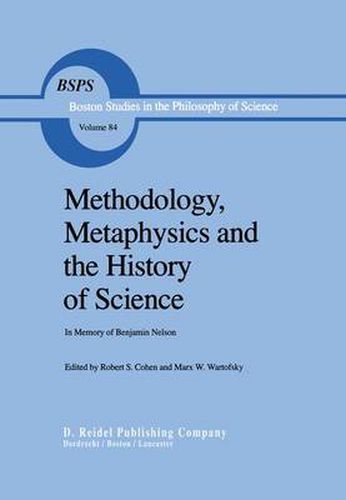Readings Newsletter
Become a Readings Member to make your shopping experience even easier.
Sign in or sign up for free!
You’re not far away from qualifying for FREE standard shipping within Australia
You’ve qualified for FREE standard shipping within Australia
The cart is loading…






This title is printed to order. This book may have been self-published. If so, we cannot guarantee the quality of the content. In the main most books will have gone through the editing process however some may not. We therefore suggest that you be aware of this before ordering this book. If in doubt check either the author or publisher’s details as we are unable to accept any returns unless they are faulty. Please contact us if you have any questions.
This selection of papers that were presented (or nearly so!) to the Boston Colloquium for the Philosophy of Science during the seventies fairly re presents some of the most disturbing issues of scientific knowledge in these years. To the distant observer, it may seem that the defense of rational standards, objective reference, methodical self-correction, even the distin guishing of the foolish from the sensible and the truth-seeking from the ideological, has nearly collapsed. In fact, the defense may be seen to have shifted; the knowledge business came under scrutiny decades ago and, indeed, from the time of Francis Bacon and even far earlier, the practicality of the discovery of knowledge was either hailed or lamented. So the defense may be founded on the premise that science may yet be liberating. In that case, the analysis of philosophical issues expands to embrace issues of social interest and social function, of instrumentality and arbitrary perspective, of biological constraints (upon knowledge as well as upon the species-wide behavior of human beings in other relationships too), of distortions due to explanatory metaphors and imposed categories, and of radical comparisons among the perspectives of different civilizations. Some of our contributors are frankly programmatic, showing how problems must be formulated afresh, how evasions must be identified and omissions rectified, but they do not reach their own completion.
$9.00 standard shipping within Australia
FREE standard shipping within Australia for orders over $100.00
Express & International shipping calculated at checkout
This title is printed to order. This book may have been self-published. If so, we cannot guarantee the quality of the content. In the main most books will have gone through the editing process however some may not. We therefore suggest that you be aware of this before ordering this book. If in doubt check either the author or publisher’s details as we are unable to accept any returns unless they are faulty. Please contact us if you have any questions.
This selection of papers that were presented (or nearly so!) to the Boston Colloquium for the Philosophy of Science during the seventies fairly re presents some of the most disturbing issues of scientific knowledge in these years. To the distant observer, it may seem that the defense of rational standards, objective reference, methodical self-correction, even the distin guishing of the foolish from the sensible and the truth-seeking from the ideological, has nearly collapsed. In fact, the defense may be seen to have shifted; the knowledge business came under scrutiny decades ago and, indeed, from the time of Francis Bacon and even far earlier, the practicality of the discovery of knowledge was either hailed or lamented. So the defense may be founded on the premise that science may yet be liberating. In that case, the analysis of philosophical issues expands to embrace issues of social interest and social function, of instrumentality and arbitrary perspective, of biological constraints (upon knowledge as well as upon the species-wide behavior of human beings in other relationships too), of distortions due to explanatory metaphors and imposed categories, and of radical comparisons among the perspectives of different civilizations. Some of our contributors are frankly programmatic, showing how problems must be formulated afresh, how evasions must be identified and omissions rectified, but they do not reach their own completion.